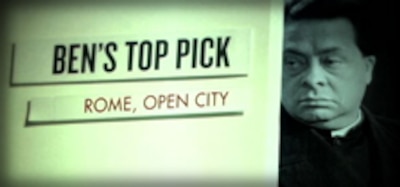Anna Magnani

About
Biography
Filmography
Family & Companions
Biography
A volatile, commanding star of post-war Italian cinema, Anna Magnani was once described by director William Dieterle as "the last of the great shameless emotionalists." She gained international attention for her impassioned performance in Roberto Rossellini's "Open City" (1945). Though her early career had encompassed repertory work, musical comedy and vaudeville, Magnani subsequently tended to appear in tempestuous, earthy and maternal roles, such as the overbearing stage mother in Visconti's "Bellismima" (1951) and the passionate widow in her Oscar-winning Hollywood turn in "The Rose Tattoo" (1955), written by Tennessee Williams with her in mind.
Wild-eyed, with a dumpy, matronly figure, and a disheveled appearance, Magnani nonetheless became a symbol of seething, earthy, mature sexuality in the postwar years and throughout the 1950s. She was outstanding as the commedia dell'arte actress in Jean Renoir's "The Golden Coach" (1952) and her performance as a deranged peasant who believes herself impregnated by St. Joseph in Rossellini's "L'Amore" (1948) was condemned by American censors as blasphemous. Magnani's last really important performance in film came with her galvanizing work in the title role of Pier Paolo Pasolini's powerful "Mamma Roma" (1962), though she was quite pleasingly robust and lusty in the enjoyable comedy "The Secret of Santa Vittoria" (1969). Her last screen role was a cameo in Fellini's "Roma" (1972).
Filmography
Cast (Feature Film)
Misc. Crew (Feature Film)
Life Events
1927
Toured Argentina
1927
Film debut in bit part in silent film, "Scampolo"
1934
Film acting debut in "La Cieca di Sorrento/The Blind Women of Sorrento"
1935
Came to attention of film director Goffredo Alessandrini who cast her in a small part in "Cavalleria" (1936)
1936
After marriage to Alessandrini, retired from stage and screen (except for "La principessa Tarakanova" 1938) because he felt her unsuitable as a screen actress; returned to stage in melodramatic roles
1941
Appeared in first important film, "Teresa Venerdi/Friday Theresa" (directed by Vittorio de Sica)
1950
"Il Miracolo/The Miracle" segment of the 1947 film "L'Amore/Love" was banned by the Commissioner of Licenses as "blasphemous" when it opened in New York in December
1955
Made first Hollywood film, "The Rose Tattoo"
1965
Returned to Italian stage in "La Lupa/She-Wolf" under the direction of Franco Zeffirelli
1966
Appeared on stage as Medea in Jean Anouilh's play, directed by Gian Carlo Menotti
1969
Final film performance in "The Secret of Santa Vittoria"
1972
Final film appearance in a cameo in "Fellini's Roma"
Videos
Movie Clip











Trailer


Promo
Family
Companions













